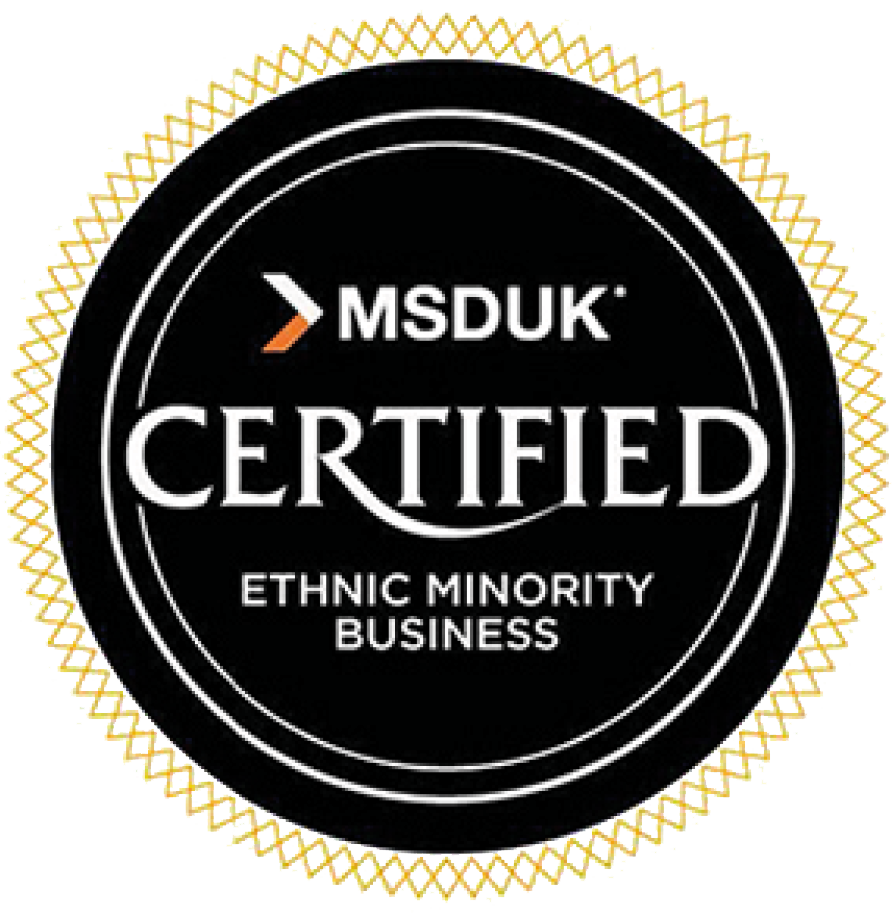What does Diversity, Equity & Inclusion (DEI) look like in 2024? INvolve’s Managing Director provides an insight on the most pressing topics and emerging fields in the sector.
2023 has been a fraught year. From a business perspective, we’ve seen questions around big tech and data privacy come to the fore, increasing discussions and practical applications of AI within our workplace infrastructures and the navigation of wellbeing as ramifications of the pandemic still unfold in the midst of high inflation rates and ongoing global events.
As we move into 2024, the focus will remain on key issues such as the importance of ESG reporting, the return to the office and flexibility, the part that DEI plays in the future of AI, as well as the politization of DEI and organizational self-reflection on whether it remains a necessity or a nice-to-have. As these issues only become more pronounced it is critical to center DEI as a crucial component in business. Or at least, for businesses that are invested in their own future by focusing on their people and creating a culture that is conducive to everyone’s success. Ultimately, the adage that ‘a business is only as good as its people’ stands correct, and organizations should keep this in mind while navigating some of the upcoming trends affecting DEI.
The importance of ESG reporting
The importance of ESG will not be subsiding in 2024, in fact the need to create a cohesive and robust reporting strategy will only increase as a result of the expansion of reporting mandates in different parts of the world. Despite the urgency however, according to research almost eight in ten businesses have not started preparing for ESG’s new reporting requirements that will be implemented in phases from January 2024 across the EU.
With ramifications for companies who fail to or don’t adequately report on ESG and address broader DEI strategies on the horizon, it will become a necessity for businesses to build a strong ESG reporting infrastructure. This also requires businesses to think about ESG beyond environmental sustainability, which while crucial, does not adequately address DEI (nor is it built to).
Simply put, those companies that put DEI on the backburner or are still sceptical of its use case risk seeing poor ESG reports that’ll domino into wider business consequences which could impact investment and stakeholder engagement.
DEI has a lot to learn from ESG from a reporting perspective too and you can read our article on this topic here.
Engagement & the return to the office
With reporting frameworks being put in place by an increasing number of companies, employee engagement metrics will become central, and engagement will be a key area of focus for HR professionals.
When looking at the trends in the top rewards components reported by employees, workplace flexibility is valued higher than competitive remuneration and bonuses, or paid time off. Yet this flexibility is not top-of-mind for most business professionals, who see a return to the office as an essential component to drive innovation and foster productivity. Yet flexibility can be offered in many ways, through providing hybrid working options, to specific arrangements for deskless employees. A personalised approach to reviewing flexible working is necessary to make sure that employers are aware of their employees’ specific needs (caring responsibilities, disability and neurodiversity, etc.).
AI in DEI
AI is hardly a new development, as 2023 has seen its multiple use cases manifest across society.
However, what is DEI’s role in AI?
AI still needs to mature to become truly inclusive but 2024 should see a proliferation in these conversations. At the moment, it is worth recognizing the inherent biases that exist within AI (and its companies); biases that can trickle down into the product, from the very early stages of product development, to the services it provides. Therefore, technology products that aim to enhance business practices, from recruitment efforts to data collection, require a wide variety of human beings in the creation, in the development, and even in the marketing of these products, because it must consider the variety of needs of their end consumers. We know all too well that AI has come under fire for further entrenching bias within business, and 2024 provides a time for continued conversations and AI refinement, so we can use AI to dismantle unfairness in business and in our society at large.
The reinvention of DEI
‘DEI’ has become a loaded term.
With people, institutions and prominent media figures becoming increasingly polarized and vocal in their viewpoint against or for the sector, ‘DEI’ as a phrase is becoming more and more politically charged and therefore contentious, with some companies opting for merging it with other priorities such as Well-being, Talent development or ESG, Sustainability/CSR.
With two key election years in the horizon in the US & the UK, 2024 will likely see businesses move towards reinforcing this trend when it comes to using their vocal support of DEI. It is critical that positions of neutrality or the fact of merging it with other priorities do not water down the work being done within this space. For businesses that are reticent on being vocal on issues that could be perceived by some to be ‘outside’ their organizational remit, referring to the business case to double down on efforts for change is useful. Evidence shows time and time again that a good DEI infrastructure leads to better financial performance, higher levels of innovation, increased employee engagement and stronger risk mitigation. As an example, recent research from Accenture reveals that companies that have led on key disability inclusion criteria have seen 1.6 times more revenue, 2.6 times more net income and 2 times more economic profit than their counterparts. Please see footnotes for more key research references.
On top of this, as Gen Z enter the workforce in higher numbers, a lack of strong DEI interventions also impacts the overall war for talent, as this generation is more likely to value and wants to join diverse and inclusive businesses that are not just ticking boxes and will be more vocal when these expectations are not met.
While ‘DEI’ may have been co-opted and weaponized to push various (political) agendas, it remains at its’ core a tool for building better businesses. 2024 will provide business leaders with more challenges, but the ones that come out on top are those who are not deterred by the current anti-DEI climate and continue to drive forward with much-needed work. It is the companies who actively work towards driving inclusion in 2024 that will reap the long-term business benefits and will ultimately be ahead of the curve for years to come.




